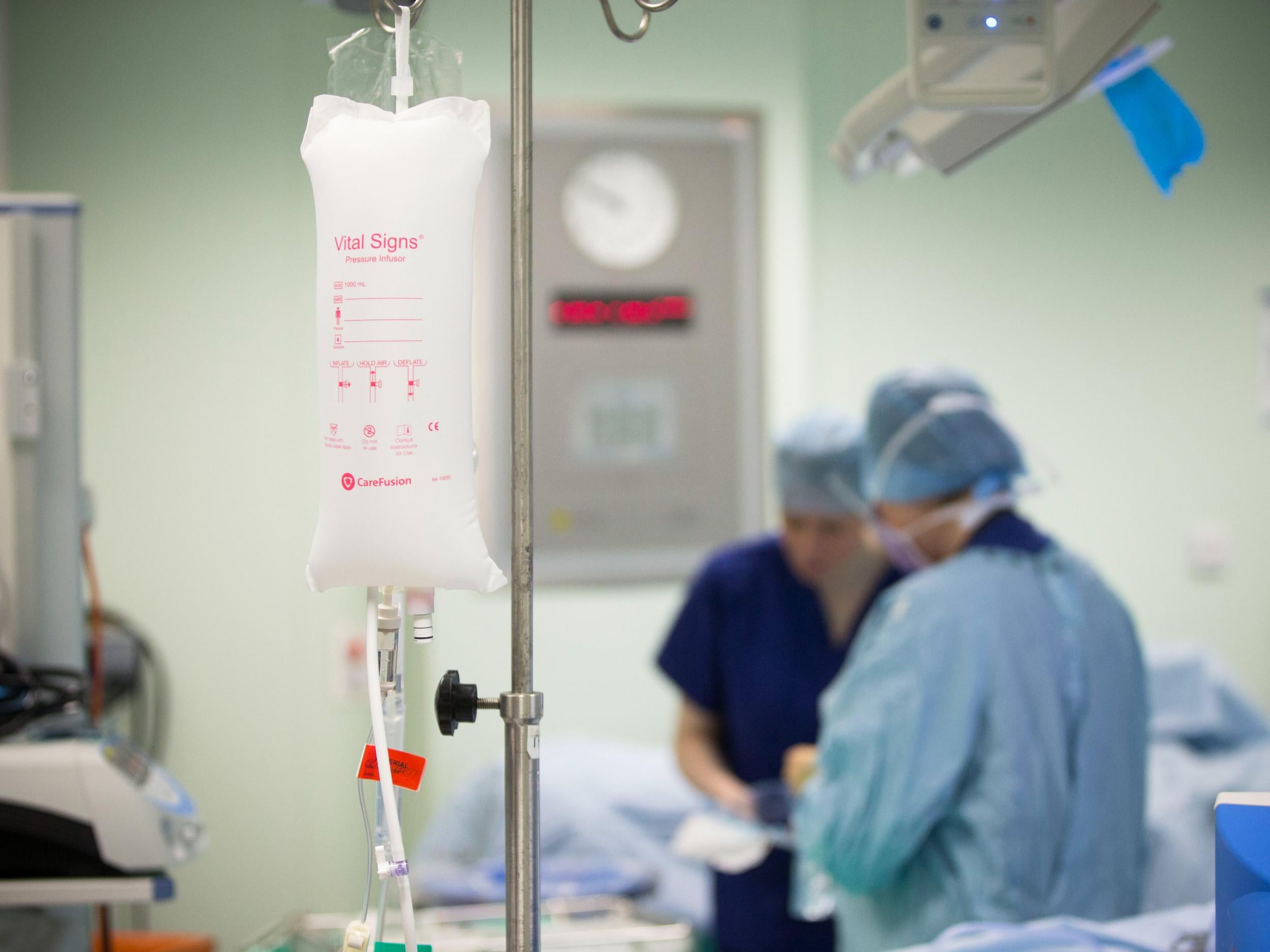Money is the only medicine to relieve the NHS of its intermittent crises
We should not be drawn into accepting that every January, or every time there is some unexpected health emergency, the automatic response for the NHS is to postpone treatments

According to the Oxford English Dictionary, a crisis is defined as “a time of intense difficulty or danger”. On that reading, NHS England is certainly in a state of crisis now, with thousands of “non-urgent” operations postponed until next month so that hospitals can cope with the current seasonal demand. Even allowing for colder-than-usual weather this year, and an increased incidence of flu and chest infections, this unprecedented move speaks volumes about how thin the margin is between the NHS, to borrow a phrase, “just about managing” and its imminent collapse.
It may be that there is too much focus on the word “crisis”, a radioactive isotope for politicians, spin doctors and NHS bureaucrats alike, keen to present an air of cool, calm efficiency. They avoid using the term because it is so politically loaded, and insist instead that pushing certain clinical treatments back for a few weeks is simply a rational and harmless way to deal with peak demand, as if they were running a restaurant and had to tell a sudden influx of hungry diners to wait at the bar for a few minutes while they locate a table.
Yet waiting for another month or more for a procedure that a patient will already have been expecting for some weeks, and which may indeed have been postponed already, is hardly like waiting another half an hour at a pizza parlour. This attitude minimises the pain and discomfort that many ill people are going through, and it encourages all concerned to accept that this is a “normal” way for the NHS to live up to the ever-rising demands and expectations placed upon it.
It is certainly true that in the circumstances, and as a short-term “fix”, it is probably better to have clarity about the situation, to explain things to those affected, and to avoid having patients waiting on trollies in corridors or in ambulances – a clinical as well as a PR nightmare. There is nothing to be gained for the NHS by pretending that beds exist when they do not, or that wards can be maintained as single-sex when that is no longer practicable. But just because it is orderly doesn’t make it right.
We should not be drawn into accepting that every January, or every time there is some unexpected health emergency, the automatic response for the NHS is to postpone treatments. For, as we should all surely suspect, it would in due course become more and more routine for hospitals to simply take January appointments out of their schedules, and then the February ones, and then the urgent operations postponed, inflicting more pain and suffering on the sick; that is an absurd and unacceptable way for the service to respond. Today the NHS is setting a very dangerous precedent.
As it celebrates, after a fashion, its 70th birthday, the NHS has never been more efficient than it is today. The problem, as is now widely understood, is that it is has never had such a weight of expectations placed upon it. “Cradle to grave” was the old NHS motto, but that span is far longer than when the welfare state was in its own infancy. Life expectancies now are such that a baby girl born in 2018 will probably live well into the 22nd century; more of us are living longer but in poorer health than ever before, with dementia in particular presenting the most labour-intensive and thus expensive, challenge to staff on wards and in the care system. Drugs and new technologies undreamt of in past decades are available to prolong useful life, and rightly so. Advances in DNA and genome editing and Crispr threaten, if that is the right word, to remove genetic tendencies to certain conditions, again prolonging life but not necessarily always prolonging quality of life.
Against those demands we are fast approaching a new crisis in supply of healthcare professionals. The pervasive and pernicious effects of Brexit are already denuding the NHS of vital staff from the EU across every sector of health and social care. If the Government is serious about its migration targets, nor will this loss of expertise be replaced by migration from outside the EU – and in any case the UK should try to avoid attracting trained staff from, say, southern Africa, where the need for them is if anything even greater than in Britain.
In other words, this seasonal crisis in the NHS may be more severe than usual, but it is hardly unexpected. Not everything can be solved by increasing funding, and the attempts by governments of all parties – albeit flawed – to invest, to raise productivity and to secure value for money have made the NHS better prepared than it might otherwise be for these exigencies.
However, a fundamental fact is re-emerging about the British public’s attitude to the NHS: while it may be the closest thing modern Britain has to a national religion, there is a stubborn reluctance to pay the taxes and national insurance contributions required to keep it in the condition we expect to find it. If we want the NHS to come permanently out of its intermittent crises, then we should be prepared to pay for the best medicine to make it better – money. Our money.

Join our commenting forum
Join thought-provoking conversations, follow other Independent readers and see their replies